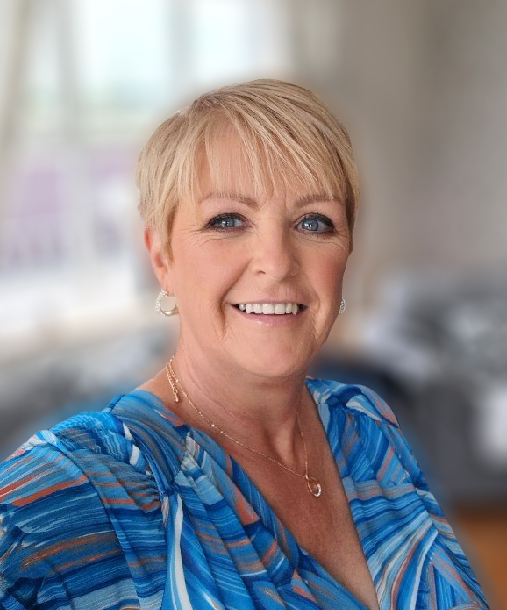Westerwood Global is constantly striving toward a more diverse, equitable, and inclusive workplace, which we believe allows our company to operate at its strongest. With a variety of experiences, backgrounds, and cultures to bring new perspectives to complex questions, we can more creatively and successfully meet the needs of all our stakeholders – employees, customers, and partners alike.
Studies have proven that organizations with more diversity have higher levels of innovation, are more likely to increase market share, and have more potential to capture new markets than businesses with less diverse workforces. One research experiment found that homogenous groups tend to fall into the “group think” trap when a group values harmony and coherence over accurate analysis and critical evaluation. “The mere presence of diversity in a group creates awkwardness, and the need to diffuse this tension leads to better group problem solving,” says Katherine Phillips, an associate professor of management and organizations at the Kellogg School of Management.
Group think stifles creativity in problem solving and, more importantly, can deter individuals from contributing ideas that veer from the norm. This is particularly detrimental to industries such as semiconductor where the search for new and emerging technologies is vital. Though advancements in equity and diversity in the semiconductor industry have no doubt been made in recent years, we are still seeing a disproportionate number of women in STEM fields. Added to this are the widening talent shortage and a persistent global pandemic which has pushed hundreds of thousands of women out of the workforce. Fortunately, many semiconductor companies recognise and are committed to advancing diversity, equity, and inclusion (DEI) initiatives. The industry’s global association, SEMI, also advocates for DEI at many of their events worldwide in addition to providing DEI resources on their website.
With DEI at the core of our recruiting and employment engagement strategies, Westerwood Global is proud that diversity is embedded in everything we do. We have a number of women on our team, many of whom have been promoted from entry-level to managerial positions, who bring fresh perspectives to our company every day. We recognise that a big part of diversity is representation and hearing other people’s voices, so we would like to thank Suzanne Conway from our Ireland team for sharing hers below. We hope her story will inspire young women looking to pursue careers in engineering and the semiconductor industry.
An Interview with Suzanne Conway

Tell me a bit about yourself and your role at Westerwood Global.
My name is Suzanne Conway, I am working in the manufacturing industry for 28 years. I am with Westerwood Global since October 2014. I have been in the Operations Managers role for 6 ½ years. When I joined Westerwood Global, headcount on our customer site was less than 50. It has since grown to 350 people on this customer site.
I have always been quite technically minded. In my first job in the industry I was fascinated at how the machines worked, and in time became quite proficient at doing 1st level repairs. I went on from there to start a maintenance technician course, however shortly before I was due to complete that course I found out I was going to be a mum and had to put my education on hold. When my son was older I decided to go back to education and when I was in my 30’s I started an engineering degree with the Open University which allowed me to study part time and work full time. I completed my BEng shortly before I joined Westerwood Global.
How does your background in engineering help in your role as Operations Manager?
I would consider myself a problem solver. I think having a technical understanding of how processes, tools and machines work allows me to see the bigger picture. I have good analysis and IT skills that I put to use in identifying and reporting on the key metrics to make us a success. As a people manager communication is key, and one of my strengths is being able to document process and procedures that can clearly translate to the relevant audience.
Did you find it difficult to get involved or integrate yourself in this industry? If so, how did you overcome it?
I didn’t find it difficult however one of the things I did notice when doing any of my courses was the low numbers of women participating in those courses.
How can we encourage more women to pursue careers in engineering?
There needs to be more done particularly in the primary and secondary school system where peers are influencers. Remove perceptions and give a better understanding of the variety of courses, and roles that are out there in the engineering world.
Why do you think diversity, equity, and inclusion in the workplace are so important?
I’m a firm believer in you won’t know unless you try and if you are prevented in any way from trying then how do you know if you will succeed. There is only a small percentage of the young population that know what they want to do for the rest of their lives, so we need to remove roadblocks in order to allow everyone a fair chance to try.
What is the most important piece of advice you have been given?
Read the curriculum- seriously though, the amount of young people that sign up to do a course because they like the sound of it, or the job will pay well when qualified, is astonishing. However they forget that they have to get through that course before they can do that job, or call themselves by that title. So if in doubt wait, you don’t need to go to college straight after school, you don’t need to decide at 17/18 what you are going to do for the rest of your life.
What is the most important piece of advice you would like to give, especially to young women thinking about their careers?
Play to your strengths- if you enjoy math’s, science subjects, and have good problem solving skills then a role in engineering may be the path for you.
